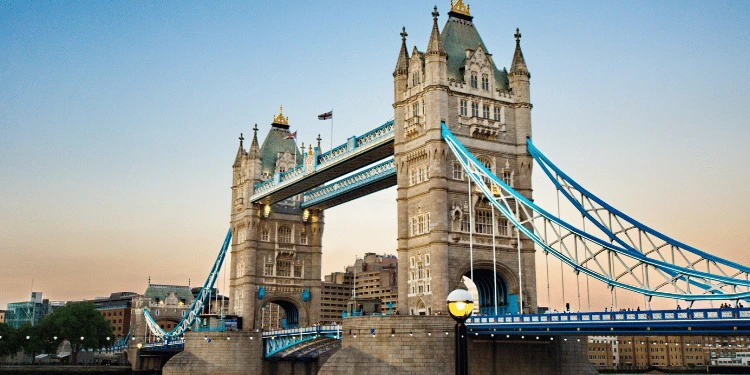Rising Reliance On Food Banks In The Uk: a Generational Wake-up Call
The silent emergency engulfing Britain’s poorest households
In a country that prides itself on economic development and social justice, the United Kingdom now faces a growing crisis that cannot be ignored — a dramatic rise in the use of food banks.
The most recent data from the Trussell Trust shows that close to 2.9 million emergency food parcels were handed out during the 12 months leading up to March 2025.
That marks a 51% increase in just five years.
What’s more troubling is the gradual normalisation of food banks within communities — they are no longer a short-term lifeline, but a long-term necessity for many.
EMERGENCY PARCELS: A SYSTEMIC DEPENDENCY, NOT TEMPORARY RELIEF
The normalisation of hunger in modern Britain
Trussell Trust chief executive Emma Revie warned that “a whole generation has now grown up in a country where sustained high levels of food bank need feel like the norm.”
This dependency paints a grim picture of daily hardship for thousands.
Emergency food parcels, once considered a last resort, have become embedded in the daily survival of families, pensioners, working adults, and disabled people alike.
Alarming surge in food poverty among children
The figures are especially devastating for families with children.
There has been a 46% increase in food parcels provided to families since 2020, and a 32% rise in parcels specifically for children under five.
These numbers are not just statistics — they represent toddlers and infants facing malnutrition and hunger during their most crucial stages of development.
FOOD BANK USAGE ACROSS THE UK: A REGIONAL SNAPSHOT
A general fall — except in London
While overall numbers have slightly declined compared to the record-breaking year of 2024, the long-term trajectory is still deeply concerning.
In England, more than 2.39 million food parcels were distributed over the past year.
Scotland saw 239,503, Wales recorded 171,673, and Northern Ireland handed out 77,057.
London was the only region to experience a rise in food parcel distribution, increasing slightly from 454,998 in 2024 to 455,571 in 2025.
This regional divide highlights not only geographic inequalities, but also the unique pressures faced by the capital amid rising rents and living costs.

A BROKEN SYSTEM: WHEN WELFARE FAILS TO PROTECT
The backlash against welfare reforms
Recent policy decisions have drawn strong criticism from the Trussell Trust.
Labelled as “harmful policy choices”, recent welfare reforms — particularly changes to disability benefits and Universal Credit — have been identified as major contributors to the surge in food bank dependency.
The Government’s proposed changes include restricting eligibility for disability benefits and removing the sickness-related component of Universal Credit.
These measures are intended to reduce the number of working-age people on sickness benefits — a number that increased sharply during the pandemic.
Economic savings at the cost of social welfare
Although the Government aims to reduce annual spending by £5 billion by the end of the decade with these cuts, its own impact assessment acknowledges that approximately 250,000 people — including 50,000 children — may be pushed into relative poverty.
This raises serious ethical concerns about whether short-term financial savings are being prioritised over long-term societal well-being.
POLITICAL FALLOUT: LABOUR UNDER PRESSURE FROM ITS BASE
Rachel Reeves faces backlash from local Labour party
The issue has caused friction within Labour as well.
Rachel Reeves, Shadow Chancellor and MP for Leeds West, is now under pressure from her own local party.
The Leeds West and Pudsey Constituency Labour Party passed a motion condemning the proposed cuts to disability benefits and agreed to write to Reeves demanding a shift in position.
This local revolt reflects growing grassroots opposition to any continuation of policies that could deepen child poverty and food insecurity under a future Labour government.
Labour’s dilemma: Inheritance or transformation?
The Trussell Trust has also warned that Labour could inherit — or even exacerbate — the crisis unless it takes bold and compassionate action.
To avoid leaving a legacy of rising hunger and child poverty, Labour must prioritise investment in families, disabled citizens, and vulnerable workers.
UNFREEZING HOUSING SUPPORT: A SIMPLE FIX IGNORED
The damaging impact of frozen housing allowances
Trussell is also calling for the Government to unfreeze Local Housing Allowance (LHA), a key benefit that helps low-income tenants cover rent.
With rising rental costs across the UK, the frozen LHA is no longer fit for purpose.
By failing to adjust this support to reflect real housing costs, policymakers are effectively pushing more families into homelessness or severe financial distress.
COST OF LIVING: THE CRISIS THAT HASN’T ENDED
Public anxiety remains high
Despite official narratives suggesting that the economy is on the mend, many households across the country are still reeling from the aftermath of the cost of living crisis.
Basic essentials, including food, heating and transport, remain unaffordable for a large segment of the population.
The use of food banks is a sobering indicator that economic recovery has not yet translated into household-level security.
A generational failure in the making
As Revie put it bluntly, “this UK government will fail to deliver on its promise to improve living standards unless it rows back on its harmful policy choices.”
She further warned that unless immediate steps are taken to boost support for families, the UK will witness a growing wave of hardship and hunger.
A child growing up today in a food-insecure household is more likely to experience long-term health, educational and social challenges — a generational setback the country cannot afford.
A FUTURE BUILT ON JUSTICE, NOT AUSTERITY
Prioritising hunger is not optional
The numbers released by the Trussell Trust are more than a call for charity — they are a demand for systemic reform.
Government officials frequently speak of improving public services and boosting the economy.
But none of this can be achieved while millions still rely on food banks to survive.
Addressing food insecurity must become a national priority.
Building a compassionate safety net
It is not enough to oppose cuts.
The country needs a robust, inclusive, and compassionate welfare system that anticipates crises rather than merely reacts to them.
Investments in social security, affordable housing, child benefits, and job security will do far more to reduce food bank dependency than any short-term economic adjustment.
FINAL THOUGHTS: NO CHILD SHOULD GROW UP HUNGRY IN BRITAIN
The rise in food bank use should shame any government that claims to govern in the name of fairness.
We are witnessing not just a crisis of hunger, but a crisis of governance — one that allows working parents, disabled people, pensioners and children to slip through the cracks.
As elections loom and manifestos are shaped, it is essential that political leaders — both in government and opposition — place food security, welfare reform, and poverty reduction at the centre of their agenda.
Because in 2025, no child in the UK should go to bed hungry.
And no adult should need to rely on charity just to survive.






